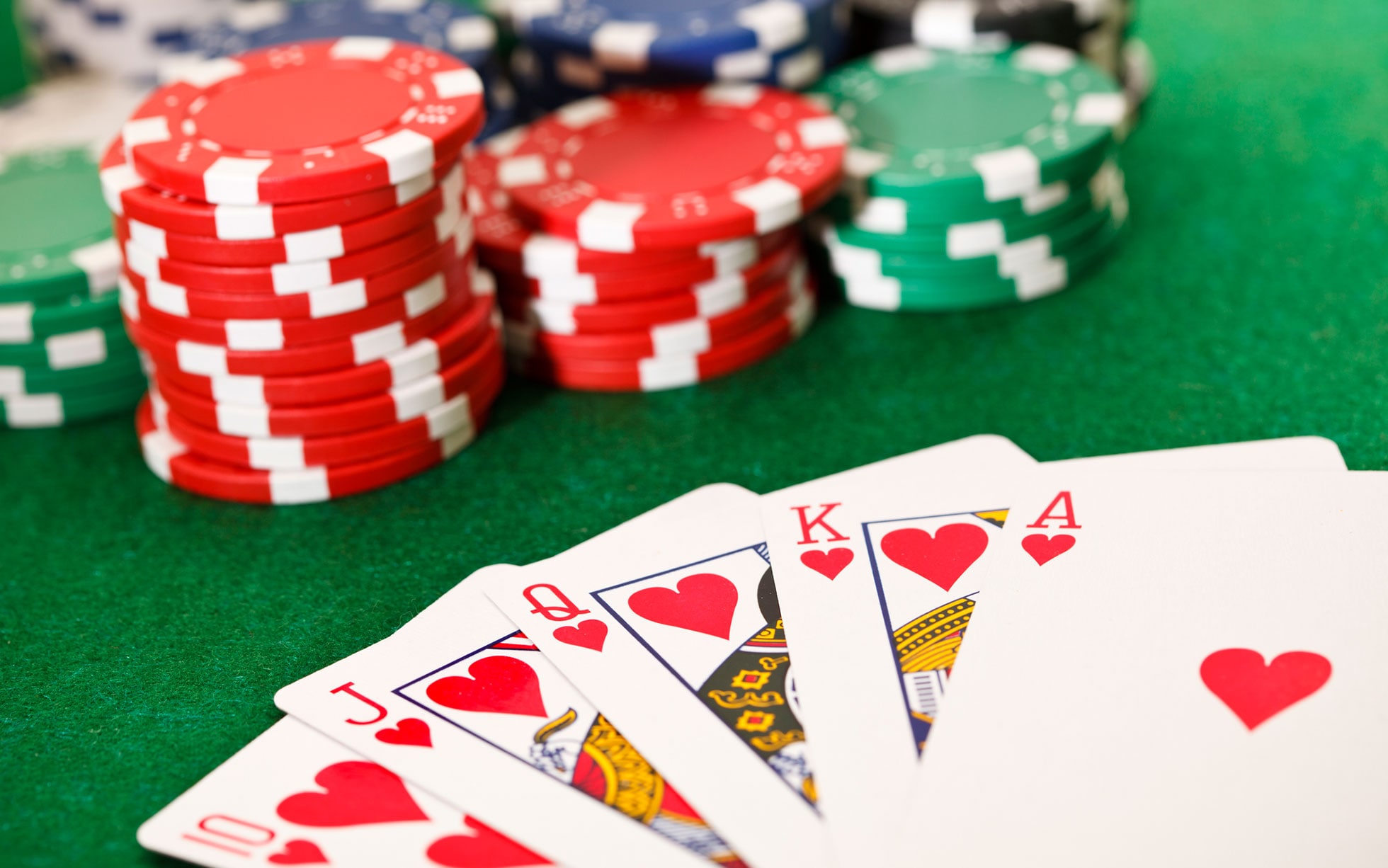
Poker is a card game that involves betting and the presentation of a hand. A player can raise, call or fold depending on the strength of their cards and the likelihood of winning the pot. The game is a mixture of probability, psychology and game theory. The player who has the highest ranking hand wins the pot. The most common hands are a straight, a flush and three of a kind. The game is played by two or more players.
There are many different poker variations. Some involve fewer cards than others, but most follow the same basic rules. The game starts with each player placing an ante into the pot. Then each player receives five cards, which they may then reveal. The player with the best five-card hand wins the pot.
Learning to read your opponents is a key part of the game. While many people focus on subtle physical poker tells, the truth is that reading an opponent is mostly about patterns. For example, if a player is always betting then they probably have some pretty strong cards. Conversely, if they are folding then they are likely holding a weak hand.
The game requires the player to make fast calculations based on their odds. This is not easy, and it can take time to develop the necessary skills. As a result, it is important to practice often. It is also a good idea to play only with money that you can afford to lose. If you do win, be sure to track your losses and wins.
In addition to developing the ability to calculate, playing poker also improves creativity and flexibility. This is because the game forces players to come up with unique solutions to complex problems. It also encourages patience, which can be useful in the workplace and in personal life.
Another benefit of the game is that it helps players become more aware of their emotions and moods. This is because it is important to stay calm and focused when playing poker. Moreover, it is also necessary to observe how other players react in order to build quick instincts.
Finally, poker can also help players develop an understanding of the concept of risk vs reward. This is because the game teaches players to compare the probability of getting the card they need with the amount that they can expect to earn from calling a bet. As a result, the game can improve players’ math skills as well as their decision-making abilities. In the end, this will help them achieve a more positive outcome in any given situation.